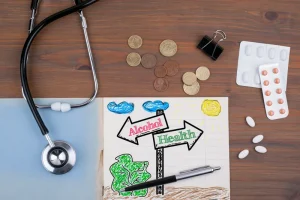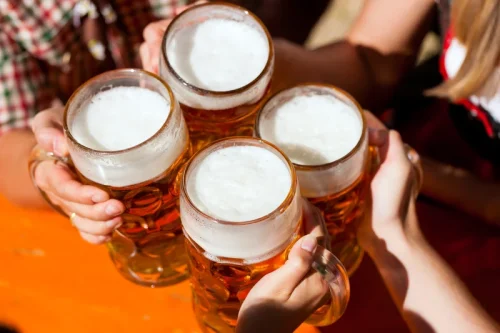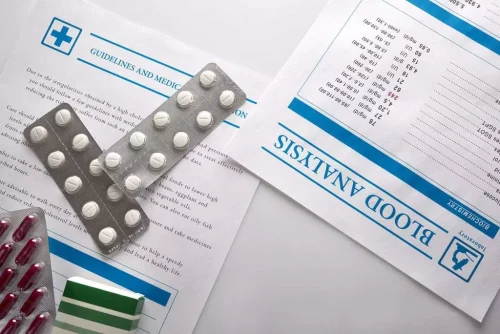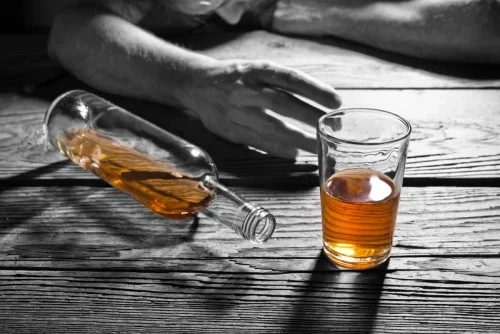A permanent condition, fetal alcohol syndrome (FAS) happens when a person consumes any amount of alcohol during a pregnancy. Alcohol use during pregnancy can interfere with the baby’s development, causing physical and mental defects. Fetal alcohol syndrome is the most severe condition within a group of conditions called fetal alcohol spectrum disorders (FASDs). Fetal alcohol spectrum disorders describes the range of conditions in children caused when the mothers drank alcohol during pregnancy. Symptoms vary greatly among children and can include all or a mix of physical, behavioral, and learning and thinking problems. Many features seen with fetal alcohol syndrome also may occur in children with other conditions.
Behavioral interventions
But certain medicines can help with symptoms such as hyperactivity, inability to focus, or anxiety. From animal models, we know that prenatal alcohol exposure affects all stages of brain development through a variety of mechanisms, the most significant of which result in cognitive, motor, and behavioral dysfunction. If you think there could be a problem, ask your healthcare provider for a referral to a specialist (someone who knows about FASDs). Specialists could be a developmental pediatrician, child psychologist, or clinical geneticist.
How are fetal alcohol spectrum disorders diagnosed?
Almost all experts recommend that the mother abstain from alcohol use during pregnancy to prevent FASDs. As the woman may not become aware that she has conceived until several weeks into the pregnancy, it is also recommended to abstain while attempting to become pregnant. Although the condition has no known cure, treatment can improve outcomes. The rates of alcohol use, FAS, and FASD are likely to be underestimated, because of the difficulty in making the diagnosis and the reluctance of clinicians to label children and mothers. Some have argued that the FAS label stigmatizes alcohol use, while authorities point out that the risk is real. Prenatal alcohol exposure is a leading preventable cause of birth defects and neurodevelopmental disorders in the United States.
When evaluating a patient for fetal alcohol spectrum disorders, each of the five conditions that comprise fetal alcohol spectrum disorders has specific diagnostic criteria. FASD is caused by prenatal alcohol exposure, which is the leading preventable cause of congenital conditions in the United States. There are currently five types of FASD, including FAS, diagnosed by prenatal alcohol exposure, craniofacial dysmorphology, growth impairment, and neurodevelopmental problems. Children with fetal alcohol syndrome and their families may benefit from the support of professionals and other families who have experience with this condition. Ask your healthcare professional or a social worker or mental health professional for local sources of support for children with fetal alcohol syndrome and their families. Early identification of FASD is critical for the well-being of individuals affected by prenatal alcohol exposure and their families.
If you’ve consumed alcohol during pregnancy, talk to your healthcare provider. It’s important to make an early diagnosis of fetal alcohol syndrome. If you’re currently pregnant and drinking alcohol, stop immediately to try liberty caps identification to lower the risk of FAS.
If you are consuming alcohol and trying to become pregnant or you are currently pregnant, reach out to a healthcare provider for help quitting. Although FAS is an incurable lifelong condition that is underdiagnosed, treatment can improve its symptoms. This article will discuss the symptoms, diagnosis, treatment, and prevention of FAS in children and adults. To diagnose fetal alcohol syndrome, doctors look for unusual facial features, lower-than-average height and weight, small head size, problems with attention and hyperactivity, and poor coordination.
Medical Professionals
There’s no known safe amount of alcohol to drink during pregnancy, and there’s no type of alcohol steven tyler health problems that is safe. The symptoms of FASDs may resemble other medical conditions or problems. However, most studies have not researched FAS symptoms in people over the age of 30.
When consumed during pregnancy, alcohol crosses the placenta and enters the fetus’s bloodstream. As children with FAS get older, they might develop behavioral problems, have problems learning and retaining information, or struggle with attention and hyperactivity, all of which may worsen as they mature. Fetal alcohol syndrome can also cause milestone (developmental) delays. However, recognizing the problem early and getting treatment for symptoms of the disorder can improve outcomes for your child. There is no “safe” amount of alcohol you can drink during pregnancy. And there is no time during pregnancy when it’s considered safe to drink alcohol, either.
If you’ve already consumed alcohol during pregnancy, it’s never too late to stop. Brain growth in the fetus takes place throughout pregnancy, so stopping alcohol consumption as soon as possible is always best. Parental training is meant to help parents to help families cope with behavioral, educational and social challenges.
Abstaining From Alcohol to Prevent Fetal Alcohol Syndrome
There are no exact statistics of how many people have fetal alcohol spectrum disorder (FASD). It can sometimes be difficult to diagnose a person with FASD because of the variety of symptoms and spectrum of severity. Also, not all people who drink while pregnant feel comfortable talking to their healthcare provider.
However, the Food and Drug Administration (FDA) did not make a public awareness announcement about the side effects of alcohol use during pregnancy until 1977. Even a small amount of alcohol can have adverse effects on a growing fetus. Alcohol seems most damaging in the first trimester (three months) of pregnancy but can affect the fetus at any time during the pregnancy. Unfortunately, people with FAS are more likely to experience legal troubles, have secondary mental health diagnoses, and have higher rates of suicide. People with FAS have better outcomes if they experience a supportive and loving environment during childhood.
Early identification can maximize help in the treatment of FASD and in building supportive networks with other individuals and families impacted by FASD. This may be due, in part, to a lack of information about prenatal alcohol exposure or difficulty in distinguishing FASD from other developmental disorders that might have similar cognitive or behavioral symptoms. No one particular treatment is correct for everyone with fetal alcohol syndrome. FAS exists on a spectrum of disorders and the way each person is impacted by the condition can vary greatly. For some, it’s best to monitor their child’s progress throughout life, so it’s important to have a healthcare provider you trust.
- Prenatal alcohol exposure is the leading preventable cause of congenital (present at birth) conditions in the United States.
- Sequelae include perturbations to affect regulation and cognition, as well as to physical appearance manifested via pathognomonic anomalies.
- Drinking alcohol during pregnancy can cause the child to have disabilities related to behavior, learning and thinking, and physical development.
- When someone has fetal alcohol syndrome, they’re at the most severe end of what are known as fetal alcohol spectrum disorders (FASDs).
- Tony Loneman, a character in Tommy Orange’s 2018 novel There There, was born with fetal alcohol syndrome, which he calls “the Drome”.
Fetal alcohol syndrome (FAS) is the most severe fetal alcohol spectrum disorder. These are a group of conditions present at birth that can happen when a pregnant person drinks alcohol. Fetal alcohol spectrum disorders (FASDs) are a group of conditions that can occur in a person who was exposed to alcohol before birth. FASDs are preventable if a baby is not exposed to alcohol before birth. The cranial neural crest cells (NCCs) contribute to the formation of the craniofacial bones. Exposure to 2% ethanol (alcohol) induced craniofacial defects in the developing chick fetus.
How is fetal alcohol syndrome (FAS) treated?
Clinicians should not wait to educate the female about the adverse effects of alcohol when she gets pregnant but start the education process at every clinic visit before the pregnancy. A mental health nurse should offer to counsel to patients who have alcohol use disorder and are of childbearing age. Only through the combined efforts of the interprofessional team can fetal alcohol syndrome be prevented. Fetal alcohol syndrome (FAS) is a condition that develops in a fetus (developing baby) when a pregnant person drinks alcohol during pregnancy. A syndrome is a group of symptoms that happen together as the result of a particular disease or abnormal condition. When someone has fetal alcohol syndrome, they’re at the most severe end of what are known as fetal alcohol spectrum disorders (FASDs).
By Serenity Mirabito RN, OCNMirabito is a certified oncology nurse. Physical symptoms such as growth how to flush alcohol from urine impairment remain unchanged during adulthood, with persistent shorter stature. In the womb, a baby doesn’t have a fully developed liver that can process or break down alcohol, so it can easily get to and damage the baby’s organs. As mentioned previously, complications range in quality and severity.































